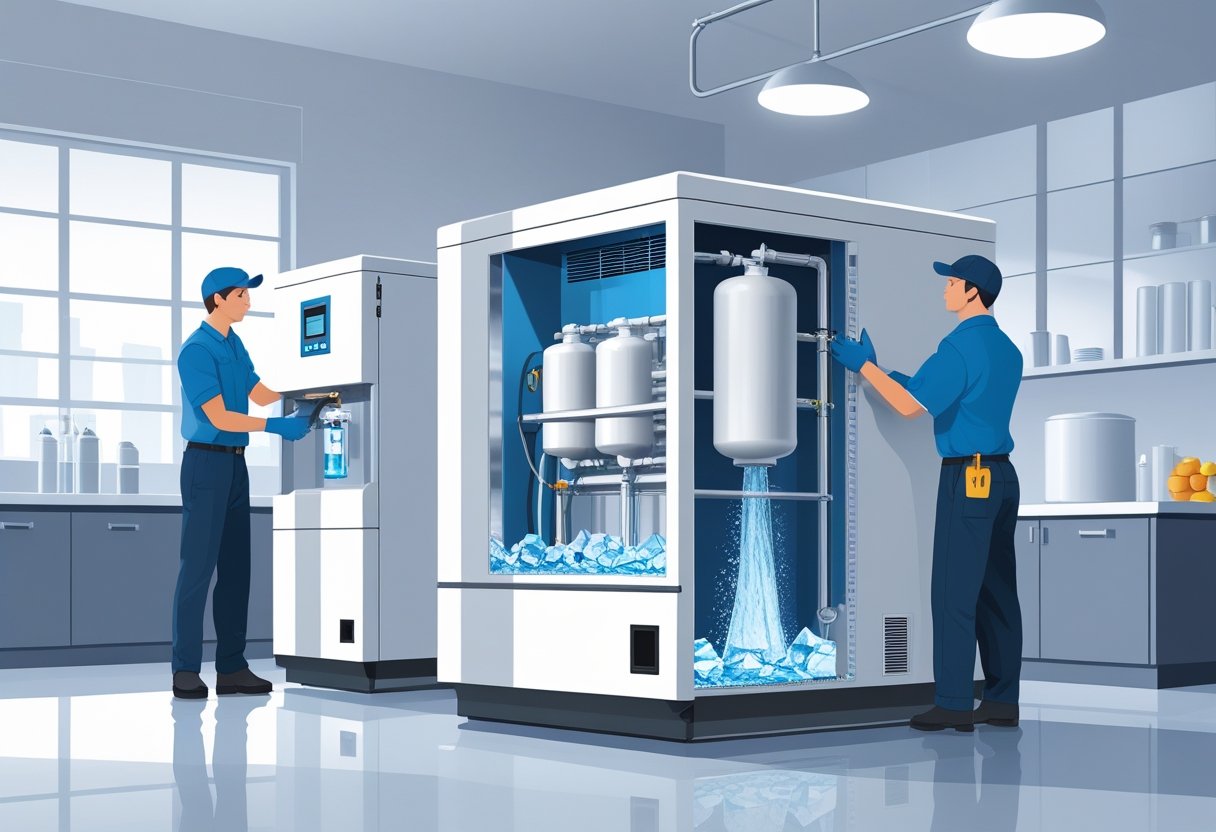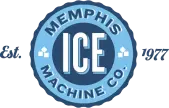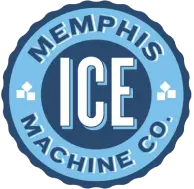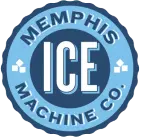proudly serving
the mid-south
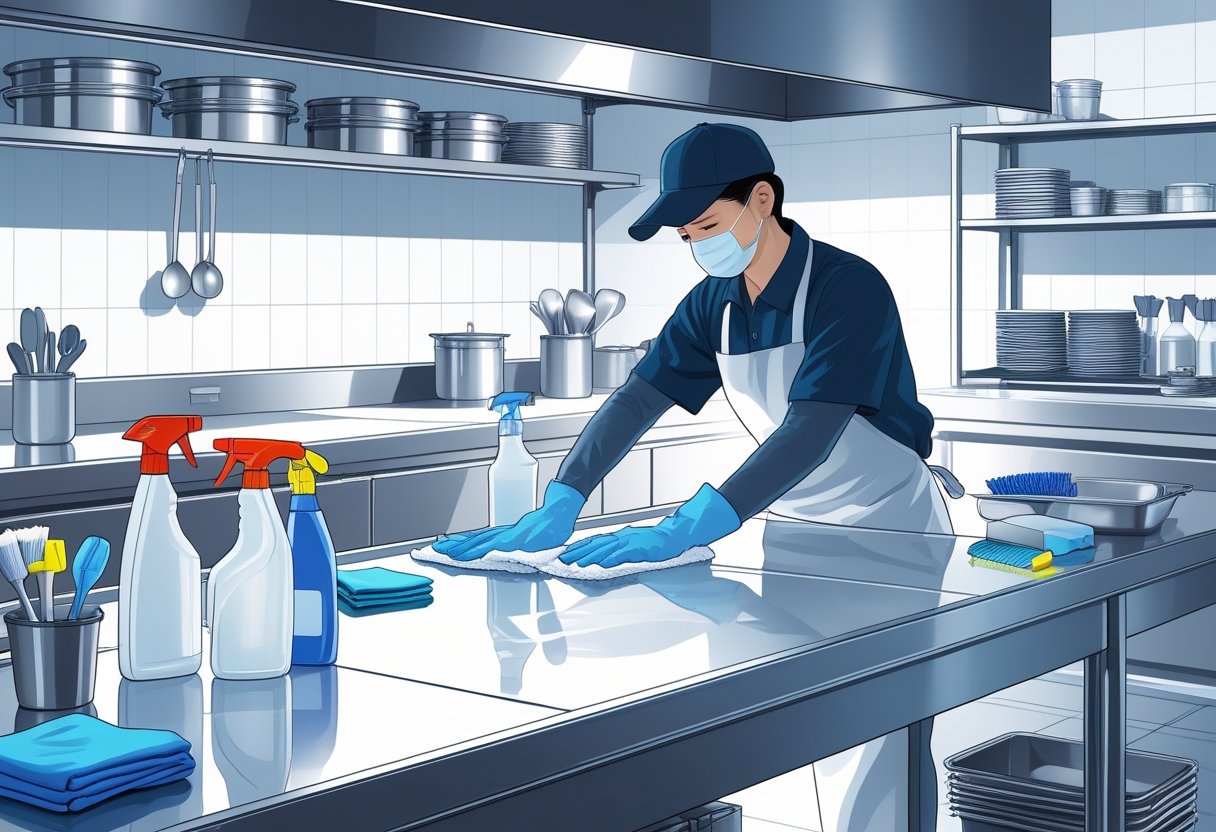
Commercial Prep Table Maintenance Tips for Enhanced Durability and Efficiency
In any busy commercial kitchen, your prep table is a crucial piece of equipment that keeps ingredients fresh and ready for quick assembly. Regular maintenance is essential to ensure your prep table operates efficiently, prevents costly breakdowns, and supports food safety standards. Neglecting this maintenance can lead to equipment failures that disrupt your workflow and compromise food quality.
Keeping your prep table clean, properly sanitized, and well-serviced helps maintain consistent temperatures and prolongs the life of the unit. Memphis Ice knows that in the Mid-South culinary scene, downtime isn’t an option, so they emphasize easy-to-follow care routines and timely professional support to keep your kitchen running smoothly. Whether you manage a sandwich shop, restaurant, or hospital kitchen, reliable commercial kitchen equipment is key to daily success.
Essential Daily Cleaning Procedures
Maintaining your commercial prep tables starts with consistent daily practices that focus on hygiene and safety. It’s important to approach cleaning with specific steps to prevent contamination and prolong equipment life.
Surface Sanitization Techniques
Begin by removing all food debris from your prep table’s surface using a clean, damp cloth. This step ensures no leftover particles harbor bacteria.
Next, wash the surface with hot, soapy water. Use a food-safe detergent that is compatible with stainless steel to avoid damage.
Rinse thoroughly with clean water to remove soap residues. After rinsing, apply a food-grade sanitizer either by spraying or wiping.
Allow the surface to air dry fully before using. Avoid using harsh chemicals that can corrode surfaces or leave toxic residues.
Drying with cloths or squeegees immediately after can remove excess moisture but never replace air drying after sanitizing. Proper surface sanitization lowers the risk of cross-contamination during food prep.
Learn more about how to maintain your prep tables properly at the WebstaurantStore cleaning guide.
Proper Ingredient Pan Care
Ingredient pans require daily attention to remain safe and effective. Start by removing the pans from the prep table and discarding any leftover food.
Wash the pans thoroughly with hot, soapy water to eliminate grease and residue. Pay special attention to corners and lids where buildup often occurs.
Rinse the pans completely with clean water. Sanitizing them with a food-safe solution afterward is essential to kill lingering bacteria.
Once sanitized, allow the pans to air dry or use clean towels specifically designated for this purpose. Do not stack wet pans to prevent moisture accumulation and bacterial growth.
Regular pan maintenance supports your entire prep table’s hygiene and food safety protocols. Be consistent daily to avoid penalties during health inspections.
For detailed care tips, see the Vancouver Restaurant Supply prep table cleaning guide.
Cutting Board Hygiene
Cutting boards are a critical point for potential cross-contamination. After each shift, scrape off any food scraps immediately using a plastic scraper.
Clean the board thoroughly with hot, soapy water, focusing on grooves where bacteria can hide. Rinse well to remove all soap.
Sanitize cutting boards with an approved food-safe solution. You can spray or submerge them briefly, but always follow manufacturer guidelines for contact time.
Air dry boards in a vertical position to prevent moisture traps, which create breeding grounds for bacteria.
Color-coded cutting boards can help avoid cross-contamination between different food types during prep.
Keeping cutting boards clean daily is key to food safety compliance and reduces risks in every kitchen operation, a principle Memphis Ice stands behind to help local businesses keep their kitchens safe.
Weekly and Monthly Maintenance Routines
Regularly scheduled maintenance keeps your refrigerated prep table operating efficiently and extends its lifespan. Focusing on thorough cleaning, ventilation upkeep, and routine inspections ensures your equipment supports food safety and consistent refrigeration performance.
Deep Cleaning Protocols
Deep cleaning goes beyond daily wipe-downs. You should remove all ingredients and containers, then clean the interior surfaces with a non-abrasive cleaner safe for food prep areas. Pay special attention to removing any spills, food debris, or residue that can harbor bacteria or cause odors.
Detachable parts like pans and lids should be soaked and sanitized according to health standards before returning them to the prep table. This reduces cross-contamination risks and helps maintain high hygiene levels required in commercial kitchens.
Avoid harsh chemicals that can damage seals or stainless steel surfaces. Use warm water and mild detergents instead, rinsing thoroughly to prevent residue. Memphis Ice recommends scheduling this deep clean weekly to keep your prep table in top condition.
Condenser Coil and Ventilation Grill Cleaning
The refrigeration system depends heavily on the cleanliness of condenser coils and ventilation grills. Dust, dirt, and grease buildup here restrict airflow, making your prep table work harder and consume more energy.
Every month, unplug your unit and gently vacuum or brush the condenser coils to remove accumulated debris. Care is crucial: use soft tools to avoid bending fins or damaging coil components.
Clean the ventilation grills with a damp cloth or mild cleaner to remove dirt that blocks airflow. Proper ventilation prevents overheating and helps the refrigeration system maintain a consistent temperature, protecting your food items and reducing costly repairs.
Interior and Exterior Checks
In your routine maintenance, inspect door gaskets and seals for cracks, warping, or dirt buildup. Damaged seals cause cold air leaks, forcing your refrigerated prep table to cycle more frequently and increasing wear. Replace any compromised seals promptly.
Check the temperature controls and ensure the prep table consistently holds the target food-safe temperature. Verify that lights and electronic components work properly, as failures here might indicate electrical issues needing attention.
Don’t overlook external surfaces, including handles and legs, which should be sturdy and clean. Small mechanical issues usually become larger if ignored, so timely inspection keeps your food prep area safe and reliable.
For assistance with your commercial refrigeration maintenance, Memphis Ice offers expert service tailored for the Mid-South region. Talk to an expert today to keep your equipment running smoothly.
Learn more about detailed practices for refrigerated prep tables at buildingservicesinc.com.
Preventing Common Issues and Breakdown
Maintaining your commercial prep table starts with focusing on key areas that most often cause trouble. Proper care in these areas helps avoid costly repairs and keeps your refrigeration system running efficiently.
Inspecting and Replacing Door Seals
Door seals play a critical role in maintaining consistent temperatures inside your prep table. Damaged or worn seals allow cold air to escape, causing the refrigeration system to work harder. This increases energy costs and risks food safety by letting temperatures fluctuate.
Inspect seals regularly for cracks, gaps, or stiffness. Replace seals promptly if you notice any damage. A simple test is to close the door on a piece of paper; if it slips out easily, the seal may be compromised.
Properly sealed doors help maintain energy efficiency and prolong the life of your equipment. If you need assistance sourcing quality door seals or repairs, companies like Memphis Ice offer reliable support.
Airflow and Refrigeration Concerns
Adequate internal airflow is essential for even cooling inside your prep table. Blocked vents or overcrowded storage can restrict airflow and cause some areas to become warmer than others.
Keep vents clear and avoid stacking items directly against them. This allows the refrigeration system to maintain a stable temperature throughout, supporting food safety.
Regularly clean condenser coils and fans. Dust buildup reduces system efficiency and can lead to premature failure. When you schedule routine maintenance or repairs, be sure the refrigeration system is checked thoroughly to prevent these issues.
Managing Condensate Drainage
Condensate drains keep excess moisture from building up inside your prep table. A clogged or malfunctioning drain can cause water pooling, which may damage electrical components or promote mold growth.
Inspect the drain regularly and clear any blockages. Use a mild cleaning solution to disinfect the area to avoid bacterial buildup that can compromise hygiene.
Proper condensate management supports both equipment reliability and food safety. If you experience frequent drainage problems, it’s time to have the refrigeration service team check for underlying faults.
Memphis Ice understands these common issues and can help ensure your prep tables stay in top shape year-round.
Handling, Usage, and Workspace Organization
Efficient use and care of your commercial prep table begin with proper handling and organized workspace setup. The way you load ingredients, arrange tools, and protect surfaces impacts both workflow speed and equipment longevity. Keeping these factors in balance supports food safety and reduces wear on your commercial kitchen equipment.
Proper Loading and Usage
Load ingredient pans evenly to avoid overburdening the refrigeration system. Place heavier pans toward the center and lighter ones around to maintain balanced cold airflow. Avoid stacking pans too high, as this restricts ventilation and can increase internal temperature, risking food safety.
Always keep lids on ingredient pans when not in use to prevent contamination and moisture buildup. Use cutting boards sized correctly to prevent overhangs that may damage table edges or obstruct workflow.
Operate the prep table according to manufacturer guidelines, minimizing door openings and ensuring temperature settings match your food prep needs. Proper usage reduces stress on refrigeration components, extending service life.
Arranging Workspace for Efficiency
Arrange your workspace by placing frequently used items within arm’s reach to reduce unnecessary movement. Position cutting boards, ingredient pans, and utensils logically so tasks flow naturally from prep to assembly.
Use modular containers and clear labeling to maintain order and quick identification. Keeping the workspace decluttered helps prevent cross-contamination and allows your team to work faster, which is crucial during peak hours.
Consider dedicated sections for different food types to meet hygiene standards. Clear division of cold storage from work surfaces helps you stay compliant and organized under the pressure of a busy commercial kitchen.
Protecting Work Surfaces
Protect work surfaces by rotating cutting boards regularly to avoid deep grooves that harbor bacteria. Use boards appropriate for the task—plastic ones for vegetables and cooked foods, wood or composite boards for meats.
Avoid cutting directly on the prep table surface to prevent scratches and structural damage. Use mats or pads when handling heavy pans or tools to guard against dents or chips.
Regular cleaning after each shift removes residues that could degrade surfaces. Memphis Ice recommends scheduled inspections and cleaning to keep your workspace sanitary and your prep table operating smoothly.
Optimizing Energy Efficiency and Lifespan
Maintaining your commercial prep table ensures it runs safely and reliably while cutting down unnecessary expenses. Paying attention to how your refrigerated prep tables use energy and scheduling regular upkeep helps protect your investment and avoid costly breakdowns.
Reducing Energy Costs
The refrigeration system in your prep table is a major energy consumer. Keeping door seals tight and clean prevents cold air from escaping, which reduces compressor workload. Make sure the condenser coils are free of dust and debris because clogged coils force the system to work harder and draw more power.
Limiting how often you open doors or drawers also keeps temperatures stable and avoids spikes in energy use. Consider setting your unit to the manufacturer-recommended temperature range, usually between 33°F and 41°F for food safety and energy efficiency.
Simple steps like checking door gaskets and regular coil cleaning can lower your energy costs noticeably. These tasks don’t take long but have a big impact on performance over time.
Scheduling Professional Maintenance
No matter how well you care for your prep table daily, you need scheduled inspections by trained technicians. A thorough professional check can detect early signs of wear in the compressor, refrigerant levels, or electrical components before they fail.
Memphis Ice recommends setting up seasonal maintenance plans to keep your equipment running at peak efficiency year-round. This service often includes system diagnostics, deep cleaning, and part replacement as needed.
By investing in preventative maintenance, you reduce unexpected repairs, extend the lifespan of your commercial prep table, and maintain compliance with health standards. It’s a practical approach that protects your kitchen’s workflow and energy budgets alike.
For expert guidance on keeping your refrigeration efficient and reliable, talk to Memphis Ice, serving the Mid-South with over 40 years of experience in refrigeration service and maintenance.
Frequently Asked Questions
Proper cleaning, regular maintenance, and timely repairs help keep your commercial prep table operating efficiently and safely. Addressing temperature control, sanitation, and wear issues will prevent costly downtime and protect food quality.
How often should a commercial prep table be cleaned to maintain optimal performance?
You should clean your prep table daily, especially after heavy use. Wipe down all surfaces, remove food debris, and sanitize cutting areas to prevent bacterial buildup and cross-contamination.
Monthly deep cleaning is also recommended for internal components to keep refrigeration running smoothly and avoid buildup that can cause damage.
What are the best practices for cleaning the refrigerated surfaces on a prep table?
Start by disconnecting the unit from power before cleaning the interior refrigerated area. Use a mild detergent and warm water on surfaces, avoiding abrasive tools that can scratch and damage finishes.
Thoroughly dry all areas before reconnecting power. Regular defrosting, if applicable, maintains efficiency and prevents frost buildup.
Can you recommend a maintenance schedule for the components of a commercial prep table?
Daily cleaning of cutting boards and prep surfaces is essential. Weekly, inspect door gaskets, hinges, and seals for wear or damage.
Monthly, clean condenser coils and check temperature settings. At least twice a year, have a professional service technician inspect and test refrigeration components to avoid unexpected breakdowns.
What are the common issues to look out for that indicate a prep table needs servicing?
Signs include inconsistent or rising internal temperatures, unusual noises from the compressor, or water pooling underneath. Damaged seals or gaskets causing cold air leaks also require attention.
If you notice condensation buildup or heavier frost than usual, it may indicate problems needing immediate repair to maintain food safety.
How can I ensure the longevity of the cutting surfaces on my commercial prep table?
Use separate cutting boards for raw and cooked foods to avoid contamination. Regularly sanitize surfaces with approved cleaners and avoid harsh scrubbing that wears away the material.
Replace cutting boards once they show deep grooves or excessive wear, as these can harbor bacteria and compromise food safety.
What is the process for calibrating the temperature controls on a commercial prep table?
Use a reliable refrigerator thermometer placed in the coldest section of the unit. Check the readout after the compressor runs for several hours.
Adjust the control dial or digital setting to maintain a temperature between 34°F and 41°F. Some models require a professional technician to perform calibration to ensure accuracy and prevent food spoilage.
For expert support and peace of mind, Memphis Ice offers tailored maintenance plans and timely repairs to keep your prep tables and refrigeration systems running at peak performance. Talk to an expert today about scheduling your next service.
Recent News
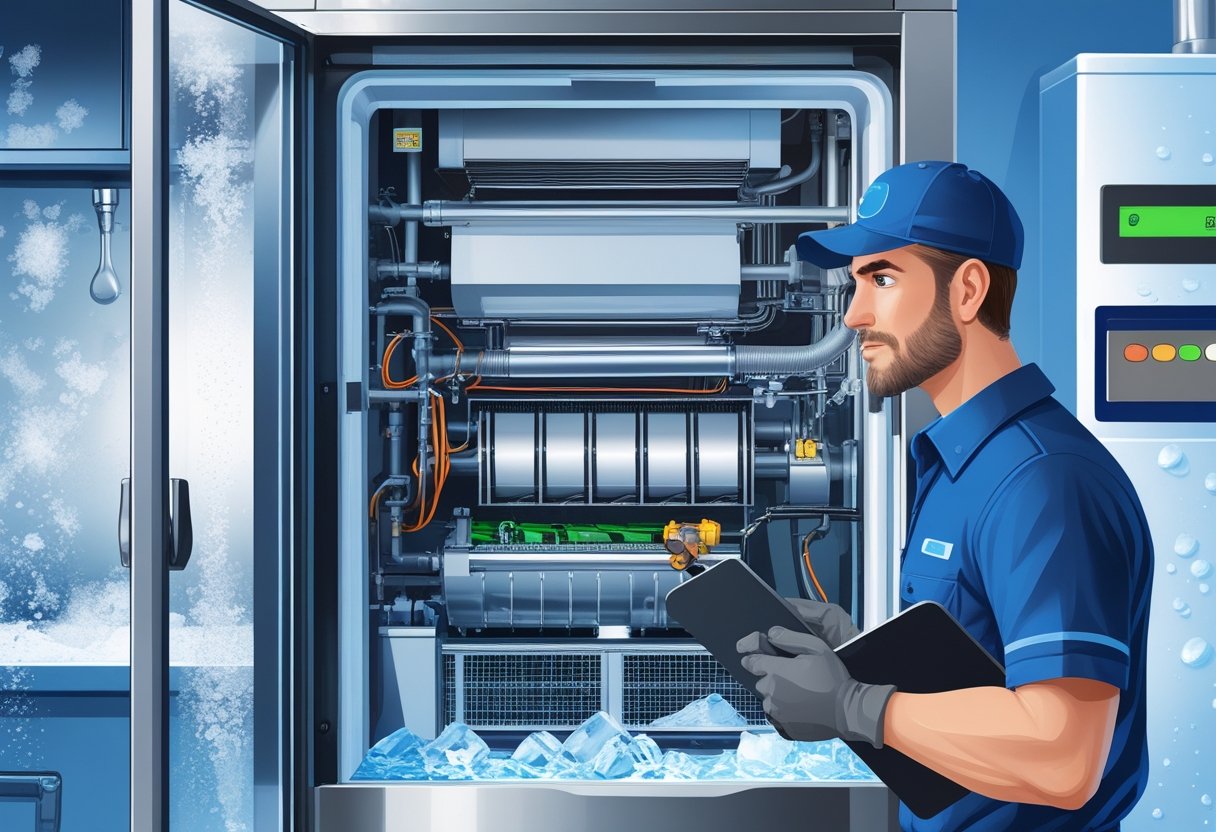
Why Is My Ice Machine Slow Causes and Quick Fixes to Improve Ice Production
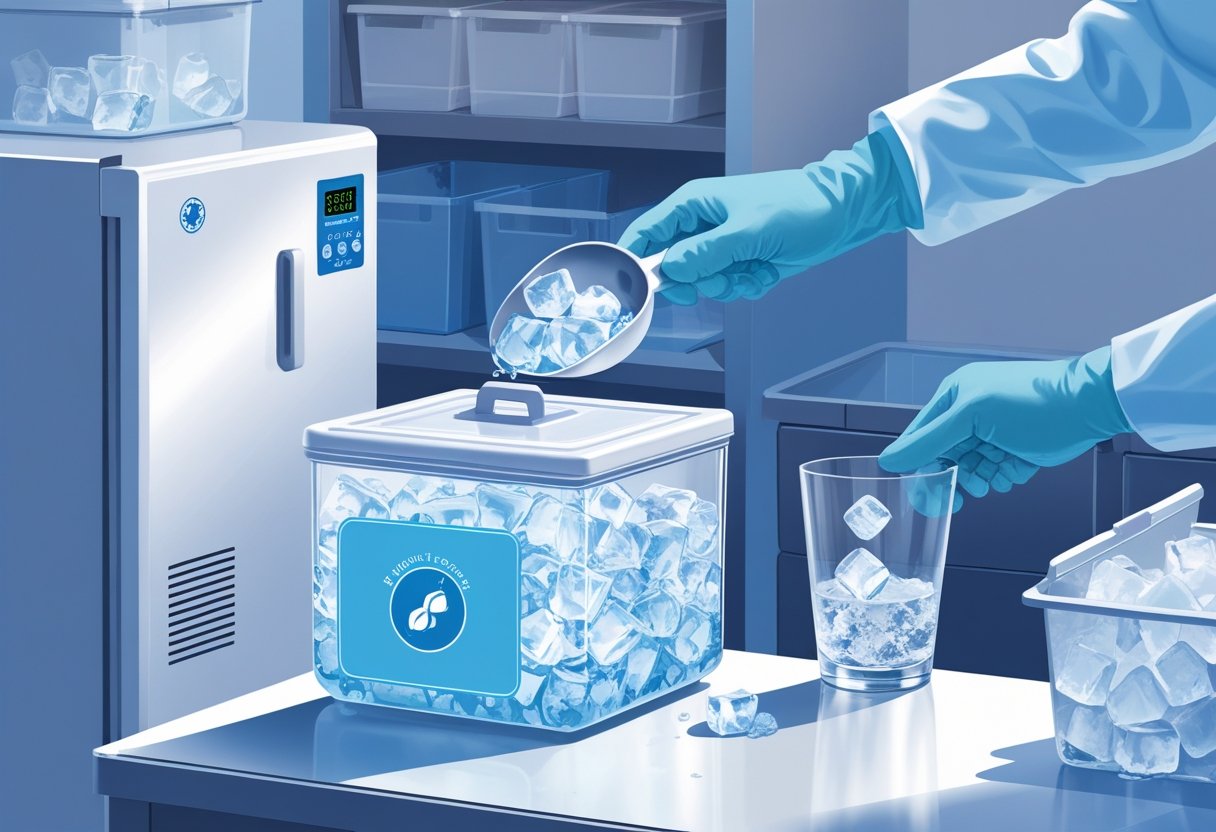
Best Practices for Storing Ice to Maintain Purity and Extend Shelf Life
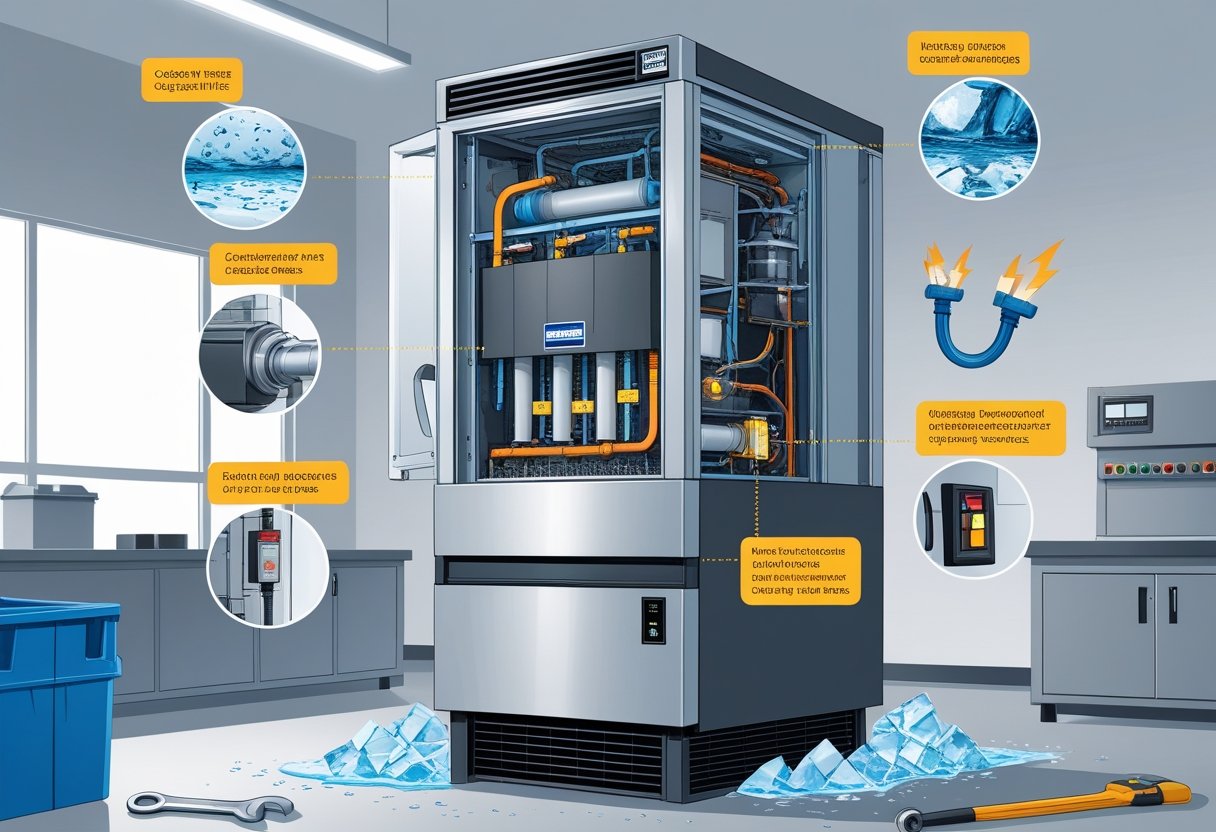
Top Reasons Ice Machines Fail and How to Prevent Costly Breakdowns
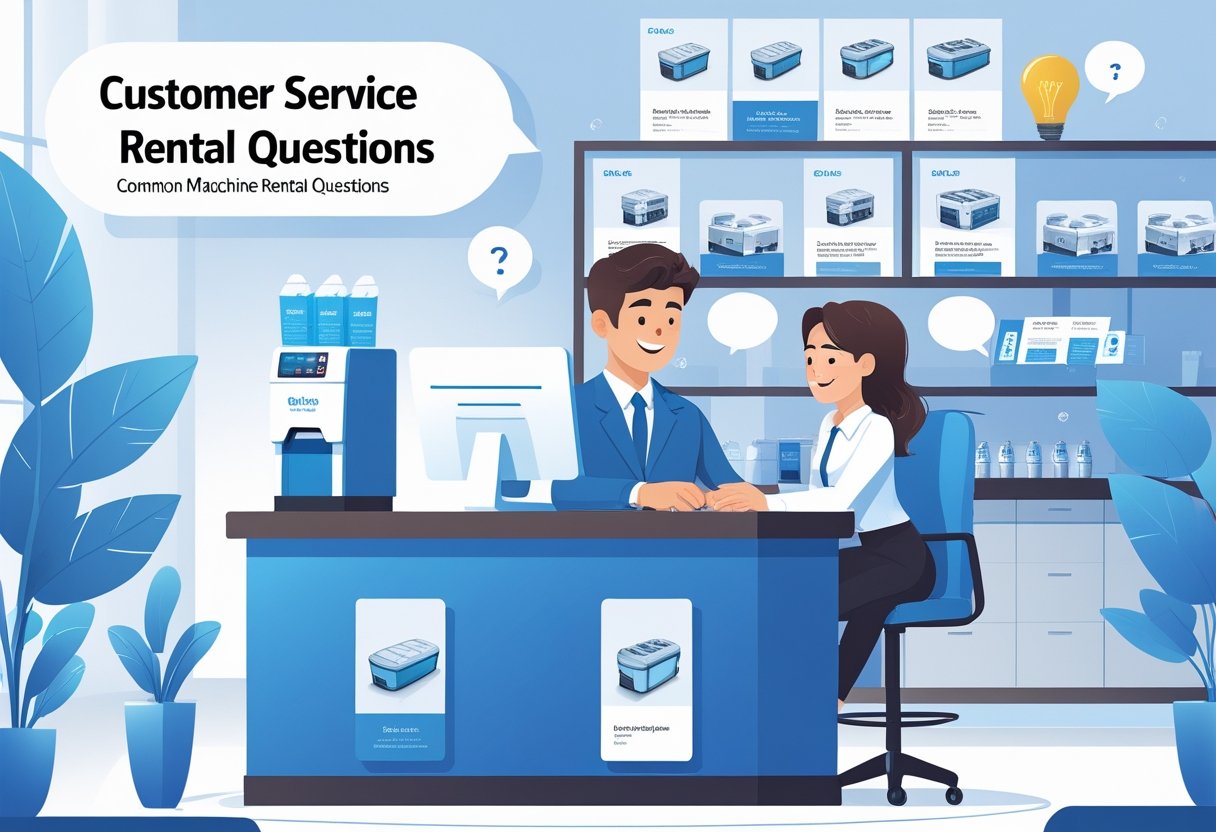
Common Ice Machine Rental Questions Answered for Event and Business Needs

How to Choose a Commercial Ice Machine for Optimal Efficiency and Reliability
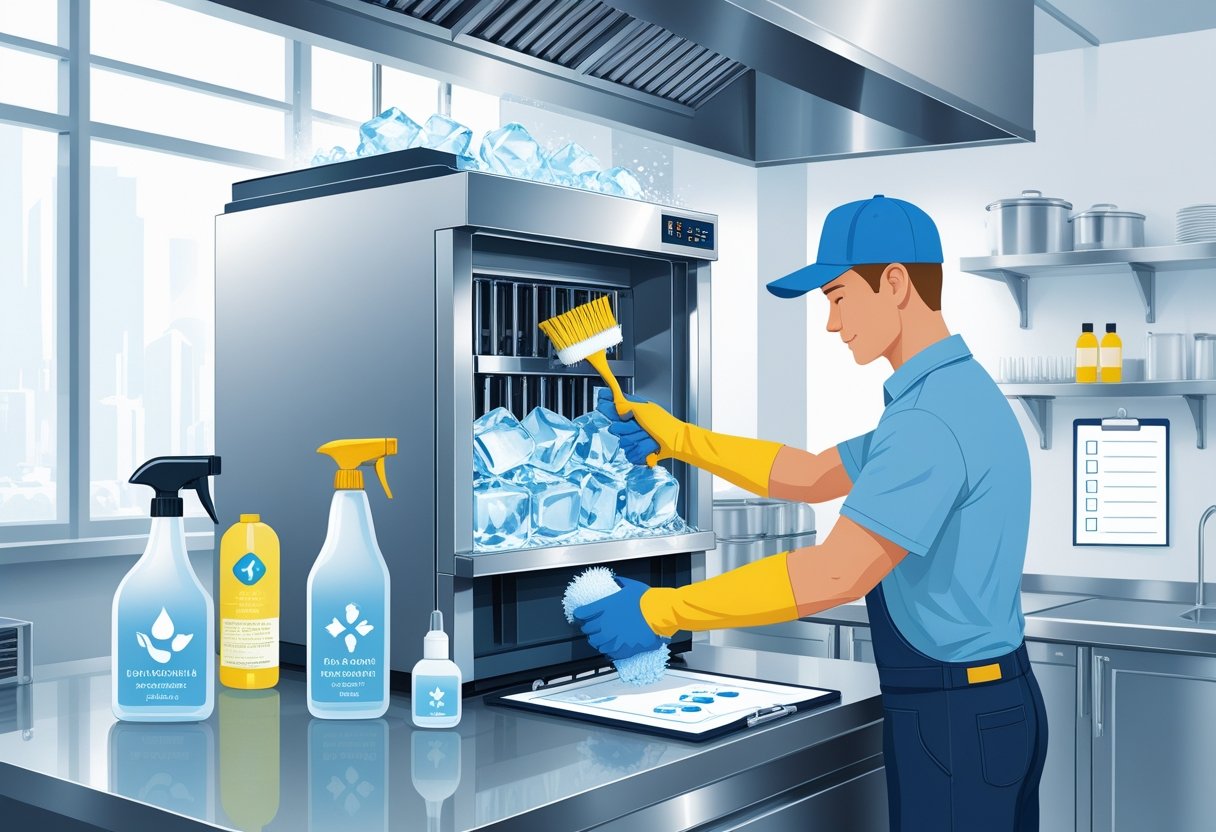
Importance of Routine Ice Machine Cleaning for Health and Efficiency Maintenance
